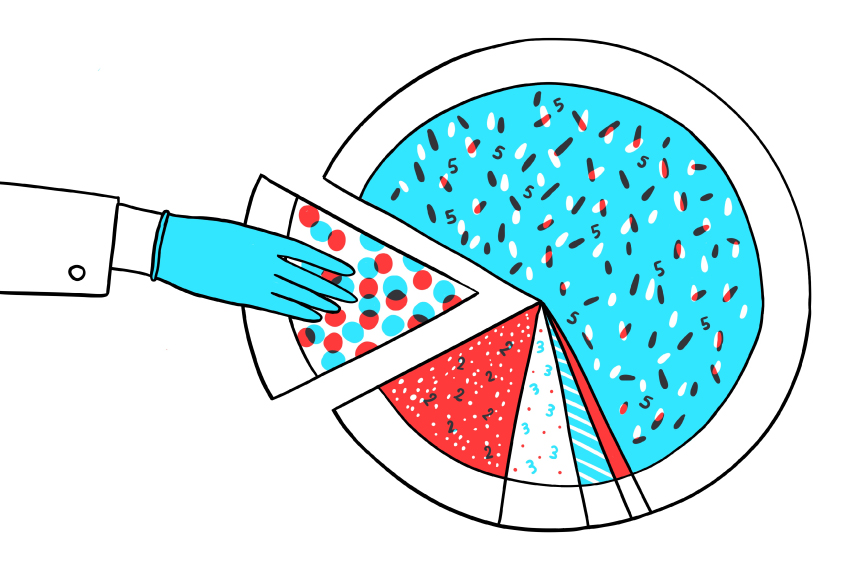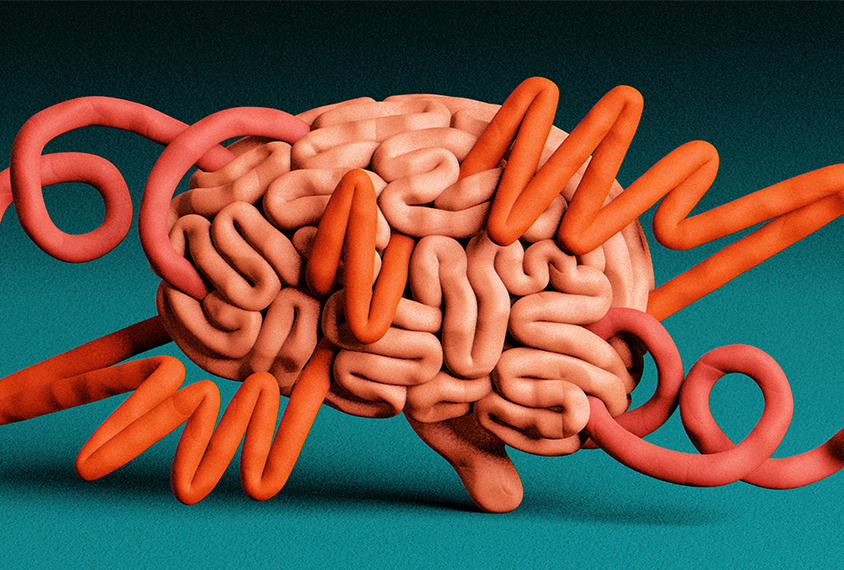Jonathan Moens is a former intern at Spectrum and a graduate student at New York University’s Science, Health and Environmental Reporting Program. He studied philosophy and neuroscience as an undergraduate student at University College London in the United Kingdom. He received an M.Sc. in brain and mind sciences at University College London and École Normale Supérieure in Paris, France, specializing in cognitive neuroscience. He previously worked as a research assistant at the Neurospin laboratory in Paris and the Center for the Neuroscience of the Senses in London.
Jonathan Moens
From this contributor
Autism comorbidities reflect racial, ethnic disparities
Autistic people from historically marginalized races and ethnicities are more likely than their white peers to be diagnosed with accompanying health conditions.

Autism comorbidities reflect racial, ethnic disparities
By the Numbers: Autism in translation, rising prevalence figures, intelligence quotients
In this edition of By the Numbers, we discuss how translation alters a screening tool’s accuracy, the closing racial gap in autism prevalence numbers, and the preponderance of autism without intellectual disability.

By the Numbers: Autism in translation, rising prevalence figures, intelligence quotients
Autism without intellectual impairments more common than previously reported
Almost 60 percent of autistic people may have an average or above-average intelligence quotient, according to a new longitudinal study.

Autism without intellectual impairments more common than previously reported
Rethinking autism assessments in the time of COVID-19: Q&A with Bishop, Zwaigenbaum
Moving most clinical assessments online during the coronavirus pandemic has created a digital divide while closing some geographical ones, say Somer Bishop and Lonnie Zwaigenbaum.

Rethinking autism assessments in the time of COVID-19: Q&A with Bishop, Zwaigenbaum
Disruptions to brain’s ‘thermostat’ may underpin autism traits
Mounting evidence suggests that autism often involves upsets in homeostatic plasticity, a set of processes neurons use to stabilize their activity. These disruptions result from a range of autism-linked mutations and may help to explain the condition’s famed heterogeneity.

Disruptions to brain’s ‘thermostat’ may underpin autism traits
Explore more from The Transmitter
Two neurobiologists win 2026 Brain Prize for discovering mechanics of touch
Research by Patrik Ernfors and David Ginty has delineated the diverse cell types of the somatosensory system and revealed how they detect and discriminate among different types of tactile information.

Two neurobiologists win 2026 Brain Prize for discovering mechanics of touch
Research by Patrik Ernfors and David Ginty has delineated the diverse cell types of the somatosensory system and revealed how they detect and discriminate among different types of tactile information.
Shifting neural code powers speech comprehension
Dynamic coding helps explain how the brain processes multiple features of speech—from the smallest units of sounds to full sentences—simultaneously.

Shifting neural code powers speech comprehension
Dynamic coding helps explain how the brain processes multiple features of speech—from the smallest units of sounds to full sentences—simultaneously.
Astrocytes orchestrate oxytocin’s social effects in mice
The cells amplify oxytocin—and may be responsible for sex differences in social behavior, two preprints find.

Astrocytes orchestrate oxytocin’s social effects in mice
The cells amplify oxytocin—and may be responsible for sex differences in social behavior, two preprints find.